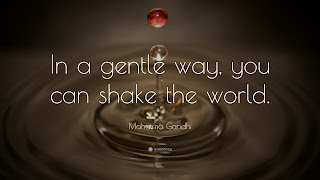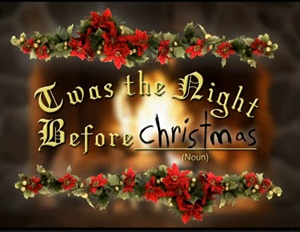Peaceful Protest Welcome
Preface:
On
September 25, 1789, Congress transmitted to the state Legislatures twelve
proposed amendments to the Constitution. Numbers three through twelve were
adopted by the states to become the United States (U.S.) Bill of Rights,
effective December 15, 1791.
Amendment
I (1): Freedom of religion, speech, and the press; rights of assembly and
petition Congress shall make no law respecting an establishment of religion, or
prohibiting the free exercise thereof; or abridging the freedom of speech, or
of the press, or the right of the people peaceably to assemble, and to petition
the Government for a redress of grievances.
The key words are, the right of the people
peaceably to assemble.
If
a group of people gather and their intent is to destroy personal property, or
violently cause harm to another then they should be arrested.
Vandalism
is a misdemeanor punishable by a fine, or jail time of less than one year.
Violence
against another is a felony, which is punishable by more than a year in prison,
and if severe enough, the complete loss of civil liberties such as second
amendment rights, right to vote, serve on a jury or hold public office.
Having said this, I offer the following thoughts:
Anyone
who watches the news knows that students around the country are trying to
affect change to our gun laws by protesting. That is their right, and as long
as they remain peaceful, I applaud them. They are, after all, the ones who will
be running this country in a few short years. Truthfully, we could use some
youthful blood in Washington, and some new ideas.
Looking
at comments on social media, I have been surprised, and dismayed, by people
from my generation. Posts referring to them as either spoiled children or not
aware of what they are protesting for. Saying they should go back to their
classrooms where they belong, and they have no place speaking to their
representatives on these issues They couldn’t be more wrong.
If
you are a child of the 60’s, you are no stranger to protests, and unfortunately
not all of them were peaceful. There were protests over the Vietnam War, civil rights, women’s rights, the
environment and gay rights. Each, to some degree, changed government policy.
They didn’t
use traditional methods of political activity. Instead of voting for a
political candidate and hoping that the elected official would make good
policies, these protesters believed in a more direct democracy. They took
actions such as marches, picketing, sit-ins, rallies, and petition
drives to convince others to join their causes and change public policies at the local,
state, and federal levels. They contributed time, energy, and passion with the
hope of making a better, more just society for all.
So, I
ask you, are the students protesting today so different from the protestors of
the 60’s? They are, as those before them, trying to make this country a safer
and better place for all who live here.
I
believe that theirs is a noble cause, and as long as they assemble peaceably,
who are we to criticize or stop them? Perhaps we should start listening to what they have to say.




Comments
Post a Comment